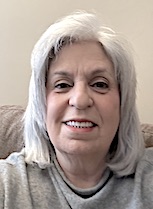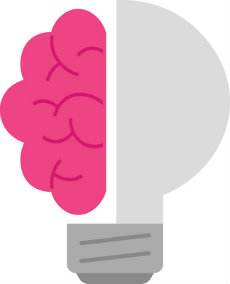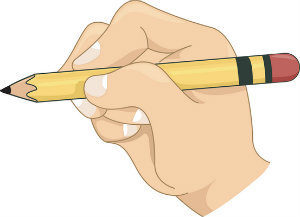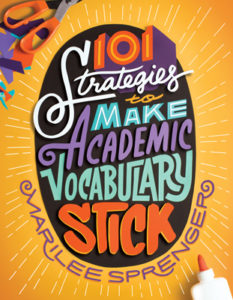Brain-Friendly Strategies for Your Vocab Toolbox

I am often asked what my favorite vocabulary strategy is. The answer is simple: whichever one works!
I have shared dozens of strategies with teachers over the years, and I do so because every student is different, every class is different, and every once in awhile, we are different.
What worked in fifth hour English may not work in seventh hour Social Studies. We need a full toolbox from which to pull fresh ideas when the going gets tough. If we are going to win the “war on word poverty,” we need easy access to strategies that work.
Our target: Long-term memory
Let’s look at the three stages of learning for long-term memory.
First, information is encoded. This is simply introducing a new word and laying down a weak network in the brain. Each time you introduce a word, you are trying to set up this network.

The final stage is retrieval. If the information is in the brain, can we get it out? Retrieval practice includes those quizzes you give, playing games, and various formative assessments. Focus on recall rather than recognition; in other words, try to get the students to find the information in their heads and put it on paper — rather than finding the information on a piece of paper and seeing if they can match it to something in their heads.
The strategies you will be looking for may be different for each stage of memory. Here, I share some strategies for encoding, for storage, and for retrieval. (Some strategies can be used at more than one stage.)
For Encoding:
Puzzles to Pique (Curiosity)
Foster curiosity by cutting an image or a graphic into puzzle pieces and adding a new piece to the puzzle on the wall each day until the puzzle is complete and you are ready to present the word to your class. You could also create a puzzle with the written word cut strategically so that the final piece reveals the word.
I like this one because it primes the brain for learning the word. It can actually help students with the spelling of the word as they focus on the letters after they are revealed. It’s fun!
Enriching the Vocabulary Experience

Explain that when you say each word, you want students not to write down that word, but to jot down two other words or ideas that the word brings to mind. Pause for 10–20 seconds between words.
When you finish, ask students to turn their papers over and try to remember the original words you said. Then let them turn their papers over again and look at what they wrote for each word you spoke. Any words that they were not able to recall should come to mind when they see the connecting words.
This one helps students make connections with new words. It may be useful to help students determine if the words they wrote are synonyms.
Vocabulary Jigsaw
• Choose your words for the week – maybe 5.
• Divide your class into that number of groups (5 words=5 groups)
• Have each group number off.
• The students with the same number from each group meet in a temporary group.
• Give each temporary group one of the words.
• Provide the context in which the word will be found. (text name, page number)
• Each group becomes expert on their word, using each other, internet, class resources, etc.
• They define, find synonyms and antonyms, create sentences, draw pictures, etc.
• Then students return to their home group. They now teach their group the word.
As students become “word experts,” their self-confidence increases. Teaching others helps solidify the memory, and learning from peers is fun.
For Storage:
Mystery Words

This is an engaging game to reinforce spelling and word meaning. It also forces students to visualize the words as they feel them on their back and “see” them in their minds.
I like this because movement, fun, and multisensory learning create new connections and strengthen existing ones.
Snowstorm
In this simple activity, each student writes a word from the word wall or your current vocabulary list on a piece of scratch paper. The students then scrunch their papers up and, when given a signal, throw their “snowballs” into the air. Each student picks up a snowball that lands close by, and the class members take turns reading their word aloud and defining it. If a student’s word has already been shared, he or she can offer a synonym or an antonym. The third time a word is read, the student can provide a sentence using the word or an example for the word.
I like this activity because it takes no prep and can be used when you have a few minutes that you don’t want to waste.
For Retrieval:
Show Me What You Know!
- Ask students to draw a picture that illustrates their understanding of a word.
- Pictures, icons, stick figures, etc. are allowed.
- Words that help describe or explain are allowed.
I like this because students use a blank sheet of paper and let their word knowledge tumble onto it. Younger students especially are very comfortable with this process. I allow some text in case I can’t recognize the drawing!
What Are You Thinking?
- Each student picks a vocabulary word that the class is reviewing and writes down 5–10 terms that describe the vocabulary word (but not the word itself).
- For the word predict, a student might write foresee, forecast, future, envision, assume, and conclude.
- When you call time, students must swap papers with a partner and try to figure out his or her partner’s word. The first pair to guess both words correctly wins.
This activity asks students to recall information that is stored, and we are reviewing several words, the vocab word and some synonyms.
A good goal: 300 academic words
Because the brain habituates and novel ideas become less exciting to students, keep many strategies on hand from which to choose. If we can really provide students the opportunity to “know” 300 academic words throughout the year, we can increase their vocabularies in a meaningful way.
Read another MiddleWeb article by Marilee Sprenger:
The 10-Minute Vocabulary Lesson

Sprenger is a popular keynote speaker and a member of the American Academy of Neurology. She stays abreast of the latest brain research and is passionate about brain research–based teaching strategies that incorporate differentiated instruction, work with the brain’s memory systems, and wire the brain for success.































Thank you for all of these helpful and fun ways to teach vocabulary. I have struggled this past school year with vocabulary. I taught 6th grade and will teach 7th ELA this coming year. I always want to engage my students in learning vocabulary. These strategies look fun and engaging. They also will help students to RETAIN the knowledge! Again this is great!